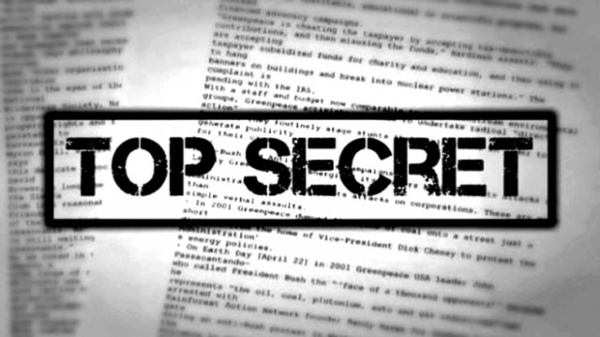While not everyone in the military is required to have a security clearance, it helps to know the process.
Several Military Occupational Specialties (MOS), including Fire Control Technicians and Geospatial Intelligence Imagery Analysts, require you to have some form of security clearance.
The U.S. government issues military clearance to select personnel at one of three levels.
Learn more about obtaining confidential, secret, or top-secret clearance as well as security clearance disqualifiers.
Related Article – Military Dental Requirements and Disqualifications
Table of Contents
Confidential Security Clearance Disqualifiers

Obtaining security clearance is required to make sure you are eligible to access national security information.
A Department of Defense military security clearance investigation examines your character, conduct, criminal background, financial responsibility, and emotional stability.
Basically, the DOD wants to establish that you are honest and trustworthy based on previous behavior.
Two aspects of the military determine your security level: A) your military job (MOS) and B) your assignment.
Confidential security clearance refers to “unauthorized disclosure that could cause damage to national security.”
In theory, confidential security clearance is not as high up on the pecking order as secret or top-secret clearance, yet that is not to suggest the security clearance lacks clout.
Obtaining any form of military security clearance demonstrates that the military trusts you with sensitive information even if you need extra clearance for classified information.
Keep in mind that the requirements for receiving confidential security clearance are similar to secret or top-secret clearance.
The major difference is that some areas of your record may not get scrutinized as closely as someone applying for top-secret security clearance.
Confidential security clearance disqualifiers include careful examinations of the following:
- Allegiance to the United States
- Foreign Influence
- Foreign Preference
- Sexual Behavior
- Personal Conduct
- Financial Considerations
- Alcohol Consumption
- Drug Involvement
- Emotional, Mental, and Personality Disorders
- Criminal Conduct
- Security Violations
- Outside Activities
- Misuse of Information Technology Systems
A periodic reinvestigation (PR) into your character and record is required every 15 years for confidential security clearance.
Check the below sections for more detailed information about the different security clearance disqualifiers.
Related Article – DEVGRU: 7 things you didn’t know about SEAL Team 6
Secret Security Clearance Disqualifiers

The Department of Defense uses the Defense Defense Counterintelligence and Security Agency (DCSA) to conduct background checks for security clearance.
After it is determined you need some form of military clearance, like secret security clearance, the government has you fill out a Security Clearance Background Investigation Questionnaire.
Service members applying for secret clearance (along with confidential clearance) must provide 10 years’ worth of information.
You must sign a waiver granting the government the right to access any of your records, including medical records, juvenile records, expunged records, or sealed records.
Those applying for secret security clearance realize that “unauthorized disclosure could cause serious damage to national security.”
A secret security clearance is considered a midlevel security clearance. Your personal record is scrutinized more than confidential clearance yet not as thoroughly as top-secret clearance.
The Department of Defense studies the same categories of your personal record as confidential clearance, yet with a little more thorough analysis:
- Allegiance to the United States
- Foreign Influence
- Foreign Preference
- Sexual Behavior
- Personal Conduct
- Financial Considerations
- Alcohol Consumption
- Drug Involvement
- Emotional, Mental, and Personality Disorders
- Criminal Conduct
- Security Violations
- Outside Activities
- Misuse of Information Technology Systems
The following are common security clearance disqualifications:
- Using a controlled substance.
- Dishonorable discharge from the military.
- Convictions of a crime with a sentence of a year or more in prison.
- Mental incompetence determined by a court or agency through formal proceedings.
It usually takes 1-3 months to officially receive secret clearance, like confidential status.
Periodic reinvestigations (PR) are required every 5 years for the “secret” level.
Related Article – 20 Health Conditions That May Disqualify You From Military
Top Secret Security Clearance Disqualifiers

A top-secret security clearance is the highest level granted to members of the military.
Consequently, you can expect the most scrutiny and thorough background investigation of any of the three levels.
Top-secret status is described as having access to information that “unauthorized disclosure could cause exceptionally grave damage to national security”.
You need to provide 10 years’ worth of history and information for top-secret levels compared to 5 years for a confidential clearance on the Security Clearance Background Investigation Questionnaire.
After the questionnaire is completed it’s sent through a National Agency Check (NAC) and Local Agency Check.
The Department of Defense also obtains your criminal history records and credit record.
Additionally, a Single Scope Background Investigation (SSBI) is conducted for top-secret clearance applicants.
An SSBI investigation checks records held by employers, courts, and rental offices.
You are also subject to an interview by an SSBI investigator along with field interviews of your references.
Interview questions range from what you like to do for fun to job history and family.
The interviewee might also ask about alcohol or drug use, personal finances, or encounters with police.
Lastly, even those with top-secret clearance sometimes need to apply for more clearance to access classified information.
If that is the case, a Sensitive Compartmented Information (SCI) or Special Access Program (SAP) is required for clearance.
Top-secret clearance takes four to eight months to complete (sometimes closer to a year depending on the applicant).
Finally, a periodic reinvestigation (PR) is required every five years for top-secret security clearance.
However, service members are subject to random reinvestigations at any time.
Military Security Clearance Disqualifiers

Now that you have a solid foundation of the three different security levels (confidential, secret, and top-secret), let’s study the specific security clearance disqualifiers in more detail.
For the most part, the military uses the same criteria for judging eligibility with the three levels.
The only difference is that top-secret applicants receive more analysis and scrutiny compared to confidential security applicants.
Keep in mind that some security clearance disqualifiers are automatic while others can get justified and mitigated.
It’s best to tell the truth with your Security Clearance Background Investigation Questionnaire.
1. Allegiance to the United States
It’s obvious that if you serve the United States and access sensitive information that you should have an allegiance to the country.
However, the government still needs to safeguard against possible intruders, like spies.
Therefore, the background investigation studies to see if there are any signs of sabotage, espionage, terrorism, treason, or sedition against the U.S. government or country.
You also cannot have association or sympathy for those that commit these types of crimes or organizations that advocate overthrowing the U.S. government.
2. Foreign Influence
Secondly, the military needs to examine your immediate family members.
Why?
Any applicants with immediate family members or a person to whom the individual has close ties of affection or obligation AND is a resident or present in a foreign country might serve as a national security threat.
The DOD may also study those who you share living quarters with along with relatives or associates with connections to any foreign government.
Most of the connections that will raise the eyebrows of government officials are straightforward.
One that might be a problem with some folks is having family members that have a substantial financial interest in another country or foreign-owned business.
3. Foreign Preference
A foreign preference is comparable to foreign influence.
The difference is the government studies any evidence of dual citizenship which might conflict with your duties of having a security clearance.
The government might ask more questions if:
- You are in possession of a foreign passport.
- You served another country in the military.
- Accept some type of benefits from another country.
- Seek or hold political office in a foreign country.
- You voted in foreign elections.
- Have foreign citizenship to protect financial or business interests in another land.
Basically, any duties that might serve in the conflict of the interests of the U.S. government may disqualify you from security clearance.
4. Sexual Behavior
The Department of Defense does study some habits of your sexual behavior.
While the questions are personal, they are basically just making sure you don’t show signs of sexual behavior that is criminal in nature.
Additionally, “compulsive or addictive sexual behavior when the person is unable to stop a pattern of self-destruction or high-risk behavior” is analyzed.
You want to reflect that you have good discretion and judgment when it comes to sex.
5. Personal Conduct
A security clearance investigation examines your personal conduct for a reason.
The investigation wants to check your paper trail and interview employers, coworkers, neighbors, associates, and acquaintances to make sure you are an upstanding citizen.
You don’t need to be a Boy Scout but “a pattern of dishonesty or rule violations” is a red flag for the DOD.
The same is true of having associations with persons involved in criminal activity.
For the most part, the DOD wants to confirm that you were not dishonest when filling out your security clearance questionnaire.
A deliberate omission, concealment, or falsification of relevant and material facts from a questionnaire is among the security clearance disqualifiers.
So it’s best not to lie and stay truthful as you fill out the personnel security questionnaire.
6. Financial Considerations
You might not see how your financial history ties into serving the military yet the government considers a track record of not meeting financial obligations as irresponsible and untrustworthy.
For example, an inability or unwillingness to satisfy debts is a red flag.
Financial problems that are related to gambling, alcoholism, or drug abuse also are security concerns.
Most importantly you don’t want to demonstrate deceptive or illegal financial practices such as employee theft, check fraud, tax evasion, or embezzlement.
7. Alcohol Consumption
Alcohol is a substance that some people are able to handle and control better than others.
Driving under the influence, alcohol-related fights, child or spouse abuse, or criminal incidents related to alcohol use all get studied.
Alcohol-related incidents at work, such as reporting to the place of employment intoxicated or impaired, reflect poorly on a record.
Essentially the DOD is confirming that you don’t have signs of alcohol abuse or dependence.
8. Drug Involvement
Drug involvement is comparable to having a problem with alcohol.
A medical diagnosis of drug abuse or dependence is problematic for security clearance.
It extends to cover the illegal possession (including cultivation and processing) or distribution of illicit drugs.
Any recent drug involvement is frowned upon heavily.
Keep in mind that while recreational marijuana is now legal in many states in the country, the U.S. military still considers it a controlled substance and therefore illegal.
9. Emotional, Mental, and Personality Disorders
The Department of Defense examines medical records for any signs of emotional, mental, or personality disorders.
If a qualified mental health professional has made a diagnosis and that diagnosis may interfere with judgment, reliability, or stability the clearance status is at risk.
The same is true regarding a pattern of high-risk, aggressive, irresponsible, or emotionally unstable behavior.
The military treats mental health very seriously so making the military, in general, is an achievement, much less gaining security clearance.
10. Criminal Conduct
Criminal conduct is pretty straightforward.
The government has access to your criminal record so it’s best to be upfront and honest about any criminal past.
A single serious crime (involving more than a year in prison) or multiple lesser offenses are potential security clearance disqualifiers.
However, everyone makes mistakes, which means if you can prove you’ve learned from your past and your current track record is much stronger, you could receive a waiver.
11. Security Violations
The military needs proof that if you were put in a position to maintain secrecy in the past you didn’t abuse that privilege.
For example, unauthorized disclosure of classified information or violations that were deliberate, multiple, or due to negligence are disqualifiers.
Outside activities also get analyzed by the Department of Defense.
Any service (whether compensated, volunteer, or employed) with a foreign country, national, or interest is questioned.
12. Misuse of Information Technology Systems
The misuse of information technology systems is a fairly new addition to the background investigation with growing technology as well as the advent of social media.
Any illegal or unauthorized entry into information technology systems is a security clearance disqualifier.
It includes illegal or unauthorized modification, manipulation, destruction, or denial of access to information on a system.
Additionally, the introduction/removal of hardware, software, or media from any information technology system without authorization is a red flag.
Related Article – Military Hearing Requirements and Disqualifications
Conclusion
Many Military Occupational Specialties (MOS) require some form of security clearance.
The three levels of personnel clearance in the military are confidential, secret, and top-secret.
The MOS you select determines what type (if any) of military security clearance you need for the specialty.
Security clearance qualifiers get established by the Department of Defense to make sure the service member is capable and trusting of not disclosing sensitive information.
The Department of Defense conducts a thorough background check to see if you qualify for one of the levels of clearance.
The background check looks into your personal character, conduct, criminal record, and financial history, and may involve contacting references.
- Ikon Pass Military Discount: Learn How To Save Big - January 31, 2025
- RTIC Military Discount: Find Out How To Save Big on Gear - January 30, 2025
- Traeger Military Discount: Learn How To Save Big on Smokers - January 28, 2025


